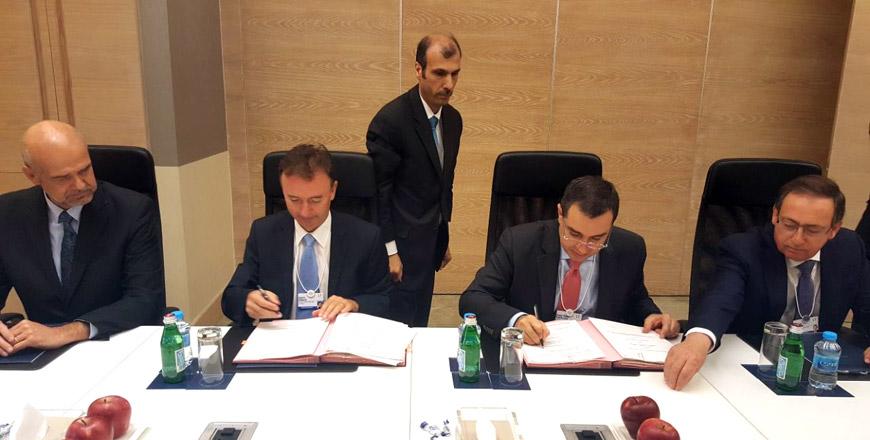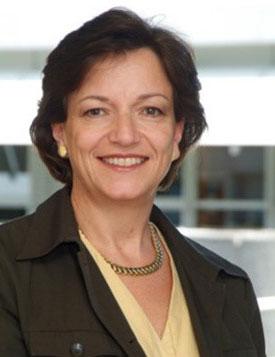You are here
Jordan, EIB sign 1.7m-euro grant agreements
By JT - May 21,2017 - Last updated at May 21,2017

Minister of Planning and International Cooperation Imad Fakhoury and Heinz Olbers, director of the eastern neighbours and Central Asia department at the European Investment Bank, sign grant agreements on Sunday (Photo courtesy of the Ministry of Planning and International Cooperation)
AMMAN — Minister of Planning and International Cooperation Imad Fakhoury and Heinz Olbers, director of the eastern neighbours and Central Asia department at the European Investment Bank (EIB), on Sunday signed two grant agreements worth 1.714 million euros, according to a statement from the Planning Ministry.
Fakhoury said that the first grant, which was also signed by Minister of the Environment Yassin Khayat, is related to the provision of technical assistance to Jordan, amounting to 714,000 euros from the investment facility to finance a feasibility study of a project for an industrial wastewater treatment plant in Zarqa, 22km northeast of Amman, the statement said.
They also signed an amending document to the technical advisory agreement for the first phase of the Red Sea-Dead Sea Water Conveyance project, which will provide an additional grant of 1 million euros for additional activities and studies.
The first technical grant for the project was 750,000 euros.
Fakhoury stressed the importance of continuing the project and the role of grants and loans in implementing salt water desalination, stressing that the project will enable Jordan to access water despite being the second water-poorest country in the world.
The project will also play an important part of efforts to protect the Dead Sea’s environment, tourism, economy and heritage, the minister added.
Also on the side lines of the forum, Fakhoury met with members of the World Council for the Future of Humanitarian Systems.
He outlined the economic challenges facing the Kingdom resulting from instability in the region and the challenges of hosting Syrian refugees, while also noting the Jordanian model of dealing with such challenges.
The World Council for the Future of Humanitarian Systems is one of the “Global Future Councils”, which includes 50 specialised councils to explore the future of the world in the development, scientific, economic and political sectors, in cooperation with the World Economic Forum (Davos), in order to set a clear future agenda for many of the challenges facing the world today, according to the statement.
The minister also met with UNHCR Deputy High Commissioner for Refugees Kelly Clements, and Canadian Minister of Immigration, Refugees and Citizenship Ahmed Hussen.
The Planning Minister said Jordan has reached its maximum capacity in terms of hosting Syrian refugees, stressing the importance of increasing levels of support to enable Jordan to continue providing services to refugees and Jordanian host communities, which is vital for enhancing Jordan’s resilience, the statement continued.
For their part, the senior officials commended the Kingdom’s “pivotal” role and the programmes of reform, modernisation and comprehensive development under the leadership of His Majesty King Abdullah, which have contributed to making Jordan a “model” in the region.
They also stressed the need for the international community to stand with Jordan and give more attention and support in order to overcome all the difficulties facing the Kingdom, the statement concluded.
Related Articles
AMMAN — Jordan on Monday signed a technical cooperation agreement with the European Investment Bank (EIB) and the Agence Française de Dévelo
AMMAN — Work is under way on a technical assistance scheme supported by the European Investment Bank (EIB) to increase the effectiveness, qu
AMMAN — The Government of Jordan and the European Investment Bank (EIB) have signed a grant agreement of 16.3 million euros to support the i

















